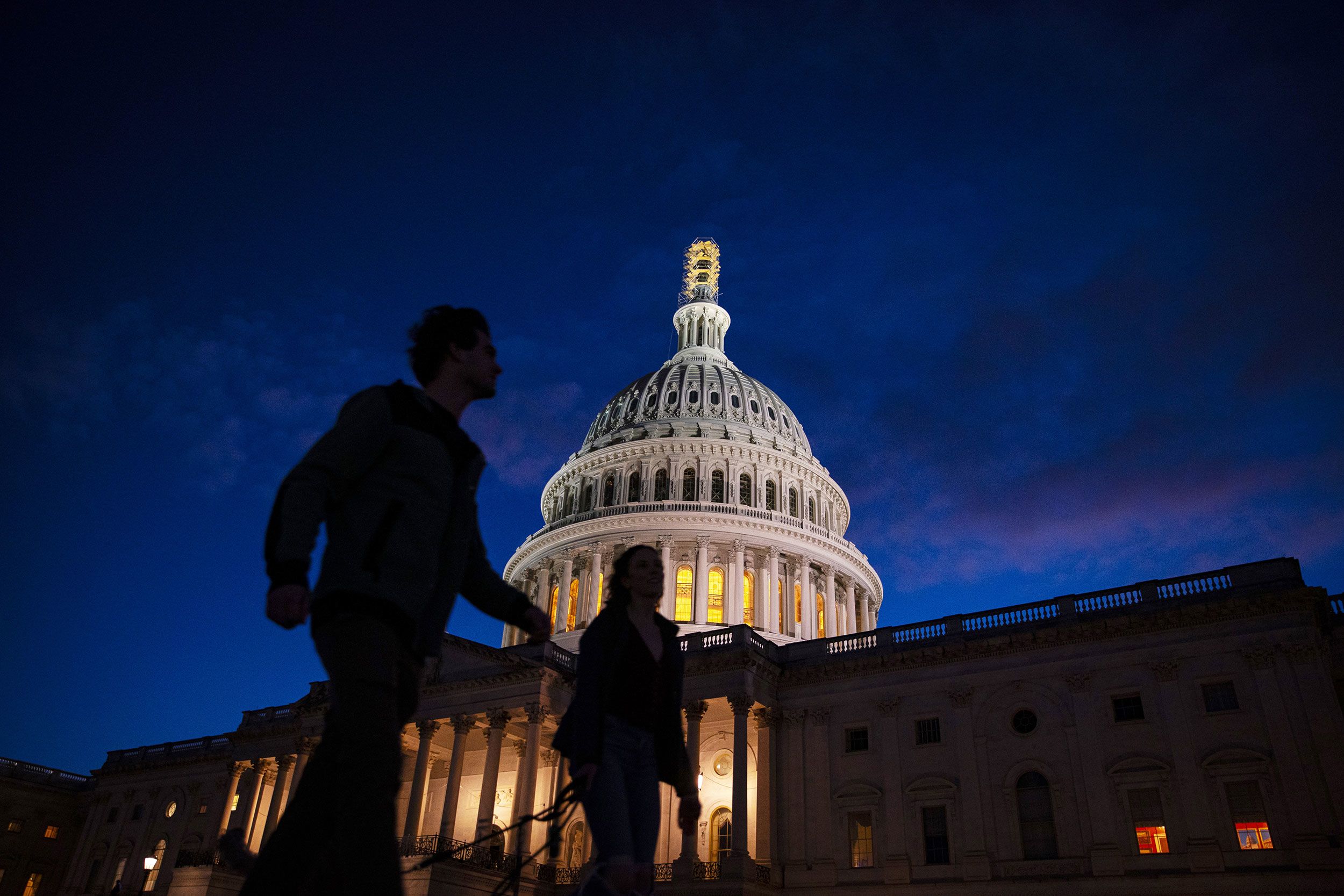The global political landscape and internal affairs at the US Capitol have been the focus of recent news. However, the upcoming Senate race is a pivotal determinant of the political future of Washington post the 2024 elections. The Senate map for 2024 appears to favor Republicans as they aim to secure the one or two seats required to flip the chamber, contingent on the outcome of the presidential election next year.
Democrats Defending Competitive Seats
The Senate Democratic Caucus is tasked with defending the most competitive seats – the top eight on the list of ten seats most likely to flip. This scenario is unlikely to change before November 2024. The ranking order, however, is subject to change, based on CNN’s reporting, fundraising figures, and historical data about states and candidate performance.
Republican Candidate Fields Expanding
Despite the National Republican Senatorial Committee’s (NRSC) new policy of taking sides in primaries, the GOP candidate fields have expanded over the past few months. The national party has expressed its preference for specific candidates in West Virginia, Montana, Nevada, and Michigan, while remaining neutral in Ohio’s crowded primary and not ruling out endorsing in Arizona.
Impact of Early Engagement in Primaries
Whether early engagement in primaries will yield positive results remains to be seen. However, NRSC Chairman Steve Daines’ strategy of keeping former President Donald Trump close seems to be working, as Trump has not yet endorsed against any of the campaign committee’s picks.
Democratic Senators Distancing from Biden
Vulnerable Democratic senators are attempting to distance themselves from President Joe Biden or signal that they represent a check on the White House. For instance, six Democratic senators, along with independent Sen. Kyrsten Sinema, recently joined a bipartisan call to the secretary of state to freeze $6 billion in Iranian assets following Hamas’ attack on Israel. This move was made despite the administration’s clarification that the money hasn’t been touched, has strict restrictions around it, and no direct link has been found between Iran and the Hamas attack.
Current Events and Their Potential Impact on Elections
It’s too early to predict whether current events, especially those abroad, could impact elections that are still over a year away. However, with the GOP-led House paralyzed without a speaker and Congress being called upon to approve aid to Israel and Ukraine, the moment has highlighted the real consequences of congressional contests.
Senate Race Standings a Year Before Election Day 2024
Here’s a look at the Senate race standings just over a year before Election Day 2024:
1. West Virginia
Incumbent: Democrat Joe Manchin
West Virginia remains the seat most likely to change party hands next year, regardless of Sen. Joe Manchin’s actions. The most conservative Democrat in the Senate, Manchin, who hasn’t ruled out running as an independent for reelection or for president, isn’t expected to announce his plans until the end of this year.
2. Montana
Incumbent: Democrat Jon Tester
Sen. Jon Tester, another red-state Democrat, is no stranger to tough races. The most pressing question is whether GOP Rep. Matt Rosendale, fresh off his vote to oust House Speaker Kevin McCarthy, decides to complicate national Republicans’ plans by mounting his own bid to avenge his 2018 loss to Tester.
3. Ohio
Incumbent: Democrat Sherrod Brown
Democratic Sen. Sherrod Brown is preparing for a tough race in a state that’s been trending red over the past decade. He’ll need all the money he can get if he faces one of the two self-funders vying for the GOP nomination.
4. Pennsylvania
Incumbent: Democrat Bob Casey
The Keystone State moves up several spots this month largely because of how uniquely settled the GOP primary is compared with other battleground states. Republicans coalesced around Dave McCormick to take on Democratic Sen. Bob Casey soon after the former hedge fund executive got into the race in late September.
5. Arizona
Incumbent: Independent Kyrsten Sinema
Kari Lake, who embraced election denialism and conspiracy theories in her losing 2022 gubernatorial bid, was far from Republicans’ dream Senate candidate in this emerging purple state. But the former TV anchor is going to be hard to beat in a primary given her strong connection with the GOP base.
6. Nevada
Incumbent: Democrat Jacky Rosen
Nevada is a slightly more Democratic state than most on this list, although that’s not saying much. It voted for Biden by about 2 points, so Democrats aren’t taking Sen. Jacky Rosen’s reelection for granted.
7. Wisconsin
Incumbent: Democrat Tammy Baldwin
Wisconsin slides down one spot on this list, in part because Republicans still don’t have a major candidate to take on Democratic Sen. Tammy Baldwin. That doesn’t mean this race won’t eventually be very competitive in a battleground presidential state that swung from Trump to Biden in 2020.
8. Michigan
Incumbent: Democrat Debbie Stabenow (retiring)
Michigan is a bluer state than its Midwestern neighbor Wisconsin. Democrats are now trying to ensure that retiring Sen. Debbie Stabenow’s seat remains in their hands. Much of the party has coalesced around Rep. Elissa Slotkin, who raised nearly $3 million in the third quarter, although she does face primary challenges.
9. Texas
Incumbent: Republican Ted Cruz
Texas is a hard state for Democrats to flip. But GOP Sen. Ted Cruz makes a good villain for national Democrat donors. The question, however, is whether that grassroots Democratic opposition to Cruz can translate widely enough to deny him a third term.
10. Florida
Incumbent: Republican Rick Scott
Former Democratic Rep. Debbie Mucarsel-Powell announced her campaign to take on GOP Sen. Rick Scott in late August. Despite only being in the race for part of the third quarter, she narrowly outraised the first-term senator and former governor.

